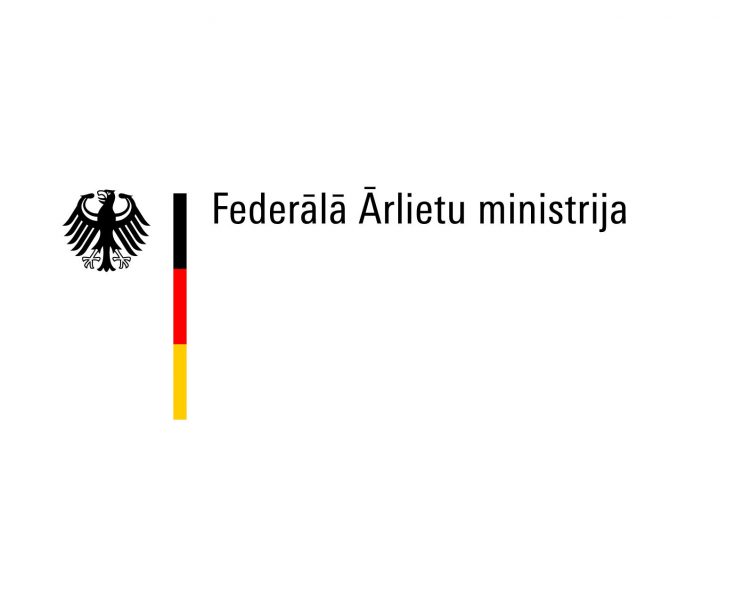The study was prepared in Latvian, describes the situation in 2020.
Full report (in Latvian) is available here: https://providus.lv/wp-content/uploads/2020/11/Providus_Sabiedribas_lidzdaliba_pasvaldibu_planosana_2020.pdf
About the study
This study aims to identify and analyze the experience of Latvian local governments in ensuring civic involvement in the process of elaborating municipal development planning documents, as well as to take stock of foreign experience regarding the use of successful, innovative methods to improve civic involvement in municipal development planning.
At the time of conducting this study, Latvia is undergoing an administrative-territorial reform, as a result of which the number of Latvian municipalities will decrease from 119 to 42. As municipalities become larger, they will need to review their development objectives, integrating the needs of inhabitants of the added areas and assessing the development objectives and opportunities of the new amalgamated municipality, in order to ensure a balanced development of its entire territory. The best practice standards for civic involvement developed in the study can become a useful tool for the new municipalities when drafting development planning documents and actively involving residents in the process.
Methodology
Survey of local governments in Latvia. To identify the practices of local governments in developing planning documents and to engage residents in this process, from June to August 2020, PROVIDUS electronically surveyed all local governments of Latvia. 108 local governments representing 91% of all Latvian local governments completed the survey.
Interviews with 11 Latvian municipal planning experts.
In order to get a closer look at the experience of local governments in ensuring public participation in the drafting of planning documents, ten municipalities were subject to an in-depth analysis. The interviewed local government representatives were selected on the basis of four criteria (if the first three criteria were met, the fourth determined the final choice of local governments to be interviewed):
- a) Representation of historical Latvian lands (Latgale/Vidzeme/Kurzeme/Zemgale and Riga);
- b) Size of the municipality (small/medium and state city);
- c) The municipality is set to become the centre of the administrative territory in accordance with the division set out in the Law on Administrative Territories and Populated Areas1;
- d) The territory of the municipality is subject to additional constraints, special rules, higher public visibility in the field of development planning (special economic zone/ extensive cultural heritage/ highly concentrated economic interests in land use, etc.).
Document review.
To take stock of the experience of the selected local governments, the study also examined publicly available documents: development planning documents, minutes, descriptions, binding regulations for local governments, municipal reports on public participation in the preparation of planning documents, municipal and other materials.
Interviews of experts and stakeholders.
During the study, interviews were conducted with experts involved in various roles in municipal development planning. Among them were urban planners, representatives of major companies providing planning services to local governments, representatives of the Ministry of Environmental Protection and Regional Development, and social activists. A total of eight interviews were held with experts: Evija Taurene (Cēsis Municipality), Inese Baumane (Ozolnieki Municipality), Māra Kalvāne (SIA Metrum), Līna Dmitrijeva (SIA Reģionālie projekti), Neils Balgalis (SIA Grupa93), Gunta Lukstiņa (University of Latvia Faculty of Geography and Earth Sciences), Āris Ādlers (association Jūras zeme), Māris Jonovs (organisation Pilsēta cilvēkiem).
Seminars with local government specialists.
Four regional meetings with municipal planners were held during the study: in Kurzeme Region (24 September 2020 in Kuldīga), Vidzeme Region (25 September 2020 in Cēsis), Zemgale Region (1 October 2020 in Jelgava), and Latgale Region (2 October 2020 in Rēzekne). A total of approximately 40 planners and municipal staff involved in planning processes attended the seminars.
Study of foreign experience.
For the purpose of the study, civic involvement tools that have proved to be successful and innovative (used in practice by local governments in other countries) were identified, both on the basis of publicly available information and by interviewing the developers or implementers of these innovative methods.
The study analysed the experience of Latvian local governments in ensuring public participation in the development of key planning documents: the spatial plan, the sustainable development strategy, and the development programme, without distinguishing between them, unless the distinction was important, as the requirements for public participation regarding these documents are similar.
Summary
Successful municipal development planning is unthinkable without targeted public involvement at all stages of the planning process: first by identifying the needs and interests of the public, then by prioritising and aligning them with the interests of others and sustainable development goals, followed by discussing the best solutions for development and monitoring their implementation. A weak participatory process can backfire later when development planning documents are actually implemented, e.g. planning documents may be challenged or legal action may be taken over a building permit. Weak participation can also backfire in a broader sense, by deepening mistrust between residents and local authorities, as the public will not understand the decisions taken by the local government and their link to the actual needs and priorities of the residents. The goal of this study was to identify and analyse the experience of Latvian local governments in ensuring civic involvement in the process of elaborating municipal development planning documents, as well as to take stock of foreign experience regarding the use of successful, innovative methods that could be useful to the local governments of Latvia in finding ways to make resident participation more meaningful.
Local governments have a duty to involve the public in the preparation of planning documents. These requirements mostly apply to the consultations on the specific text of a document, but local governments are free to decide whether and how to involve residents at the early stages of preparing planning documents. The study concluded that local governments have started to acknowledge the importance of early involvement of residents, which significantly reduces resistance or dissatisfaction at later stages when planning documents are submitted for public consultation. More than half of Latvia’s local governments carry out a variety of measures to involve residents as early as in the stage of needs identification. Despite growing awareness, the chosen methods of public participation do not ensure in-depth dialogue or even joint development of these documents, due to the relatively passive role and low responsiveness of residents. Local governments mostly seek public opinion through surveys or face-to-face meetings to hear concerns, yet there are a few cases of the authorities organising repeated meetings with the public to agree on the resulting content of the document. More development work and consultations take place in working groups, which offer poor representation of the residents. In the PROVIDUS survey, on average, municipal planners gave their local government six points on a ten-point scale for their work with residents, which is a fairly mediocre rating.
Although the study addresses all municipalities in describing and analysing the general situation, it is worth highlighting a number of municipalities with motivated planners who use a variety of additional ways to establish cooperative relations with local residents. These local governments are the pacesetters, encouraging other local authorities to improve civic involvement by following their example. The study describes a number of useful examples identified in these municipalities, which are also included at the end of this study as a source of inspiration for local governments looking for ways to motivate residents to become more involved in the development of their municipality.
The planning process is very complex and requires planners to have a wide range of knowledge and skills, not only in cartography, but also in collecting and analysing information and processing data. Planners need to be able to understand social and economic processes and to ensure public participation, including, for example, by chairing public consultation meetings. This is an almost impossible set of skills for one or two planners who are normally available in municipalities and internally assigned to development planning. In addition, most local governments tend to outsource their task of local development planning to external experts. The lack of planners, as well as weak inter-sectoral cooperation within the municipality and low participation of local government members in the development of planning documents present major obstacles to building successful and systematic long-term cooperation with the residents of the municipality.
In interviews, planners admit that working with residents is difficult because they underestimate the importance of planning documents, they are passive and not keen to participate in the various working groups and public consultations, and usually it is the same people who attend all events. More methodological support, as well as a regular assessment of local governments’ own public participation practices would help to find solutions to break this vicious circle. Planning issues are indeed not easy to understand, and residents are largely unaware of such documents. Awareness of planning documents is missing because their impact on each person’s life is not clear to residents, nor is it explained in clear language. If residents do not understand what they can change by getting actively involved, their motivation to participate is low. Similar challenges on how to improve civic involvement in municipal development planning also exist in other countries. The final part of the study describes a number of experiences, demonstrating that the degree of civic involvement in the planning processes can be much deeper. In turn, it would benefit both the local government and residents, as it produces planning documents that better respond to residents’ needs.
Main findings
Consultations with residents will almost always prolong the decision-making process and require a certain input from the local government in the form of time spent by municipal staff and financial cost of organising various activities. It will also require willingness to listen to and consider what residents have to say because discussions with residents matter only if the local government is genuinely interested in their views. However, this is outweighed by the results obtained, which in the long term significantly improve the quality of the local government’s work, the trust of residents in the local government and its employees, their willingness to participate in the work of the local government and to support its decisions.
Local governments have different perceptions of the importance of planning documents.
Municipal development planning is one of the key responsibilities of local governments, which cannot be fulfilled in a meaningful way without consultations and cooperation with residents. The study shows that local governments have different perceptions of the importance of public participation: there are many examples of local governments trying to involve residents more and looking for ways to improve cooperation with them, but there are also some local government representatives who do not understand the meaning of public participation.
Public participation is more appreciated by planners in their daily work.
The study revealed a number of positive aspects.
First, local authorities recognise that greater civic involvement is important in the preparation of planning documents. More than half of Latvia’s local governments hold various types of consultations with residents at the early stages of the planning process.
Second, a number of local governments promote public involvement by experimenting with different approaches to better engage with residents: developing cooperation with neighbourhood residents and bringing the development of planning documents closer to residents, both in the physical sense by approaching residents and in terms of solutions by recognising that residents have different needs at the local level to make their neighbourhoods safer and more comfortable. Some of the local governments have appreciated the need to speak to residents in a clearer language (more creative visuals, infographics, etc.), as this creates a better understanding of the importance of planning documents. Several local governments have appreciated the benefits of regular cooperation with residents, as it bears fruit in the long term: residents have a better understanding of the municipality’s work, make more constructive proposals, etc. These local governments are pacesetters in the sense that their approach to civic involvement motivates other local authorities to adopt good practice, to evaluate and improve their activities, and to do more than the minimum requirements for public participation.
Third, municipal planners are motivated to improve their work with residents if support from municipal management and methodological support is available. Non-governmental organisations (NGOs) can also provide support, and by summarising the issues identified in the regional seminars as well as in the more detailed research process, a short practical guide for planners is made available at the end of this study on how to make a number of improvements in engaging with residents in resource-constrained contexts. The main obstacles to informed civic involvement in local government processes.
The study also revealed a number of obstacles to full-fledged, meaningful public participation in the planning process.
Not all local governments see the elaboration of planning documents and the process as a whole as important enough to ensure sufficient capacity of planners or to develop in-house expertise. Local governments lack inter-institutional cooperation and deeper understanding. In many cases, the involvement of local government members in planning processes is low. This study has revealed that most local governments do not prepare their own development documents, but outsource them to external experts. These conditions are not conducive to a systematic approach by the local government and, in particular, by municipal planners to improving public participation. Although local governments use a variety of methods to involve the public, the role of residents in these processes is mostly passive: local governments usually survey their residents and listen to them once or twice in a working group or public consultation. Planners also admit that working with residents is very complicated because they underestimate the importance of planning documents, they are passive and not keen to participate in the various working groups and public consultations, and usually it is the same people who participate in all events, etc. In many cases, it leads to a vicious circle: planning matters are quite difficult to understand, residents are largely unaware of such documents and therefore do not gain an understanding about the issue because the impact of these documents on everyone’s life is not explained in clear language. If residents do not understand what they can change by getting actively involved, their motivation to participate is low.
Homework for local governments:
The study identifies a number of tasks that local governments should undertake to make formal public participation requirements more meaningful and more useful to the local government when planning development, as well as to ensure that residents are listened to and that their participation leads to tangible improvements.
- In order to convince residents that participation in planning processes is truly significant, the local government needs to demonstrate this importance by showing the impact of planning documents on future local government decisions, budget spending, investment projects, specific urban solutions, and the link between local government decisions and these planning documents as well as the development directions set therein.
- Local governments should review their planning resources and increase their capacity to develop regular engagement practices with residents, ranging from small planning tasks to different participatory methods in order to define the larger goals of the municipality together with its residents.
- Local governments should pay much more attention to making civic involvement activities inclusive, targeting the most affected groups while recognising that different groups may have different needs and ways of receiving information. The needs of those living in the municipality centre may differ from the needs of the residents of an adjoining parish. The more detailed the criteria applied to them, the better the local government will be able to respond.
- Even if the language of planning documents, starting with their titles, is very bureaucratic and difficult to understand, local governments can address residents in much clearer language, for instance, by inviting them to a consultation where residents can learn about what will be done at these meetings and why the local government wants to consult residents.
- Residents do not have to know the planning details or the legal framework, yet they need to be informed about what is important to them. The task of planning professionals is to translate residents’ suggestions into a policy planning document. Planners’ frustration with residents’ low understanding of the documents is sometimes based on the idea that residents’ participation is only meaningful if they are knowledgeable about planning processes and the work of the local government.
- Residents are motivated to get involved when they see the impact of their participation. Local governments should spend more time on providing feedback thus showing that they have considered residents’ suggestions or that they are working towards a solution. Participation can be useful, convenient, easy, and impactful.
The final chapter of this study gives a number of examples of innovative approaches to public participation used in other countries. These examples are a useful source of inspiration for all municipalities, both the pacesetters and those whose cooperation with residents is significantly less intensive. Latvia has not yet introduced extensive consultations with residents that would give them a much greater role in the process. Several examples show that, in cases of an extensive consultation process, residents influence the final decisions. Cases from other countries prove that residents can successfully contribute to solving various planning challenges if they are given such an opportunity and their views are taken into account.
Report is created by the Centre of Public Policy PROVIDUS as a part of the project Engaging municipalities: promoting best practices of civic involvement in decision-making (funded by the Federal Foreign Office of the Federal Republic of Germany)



